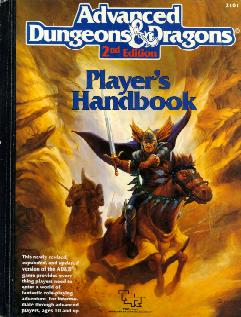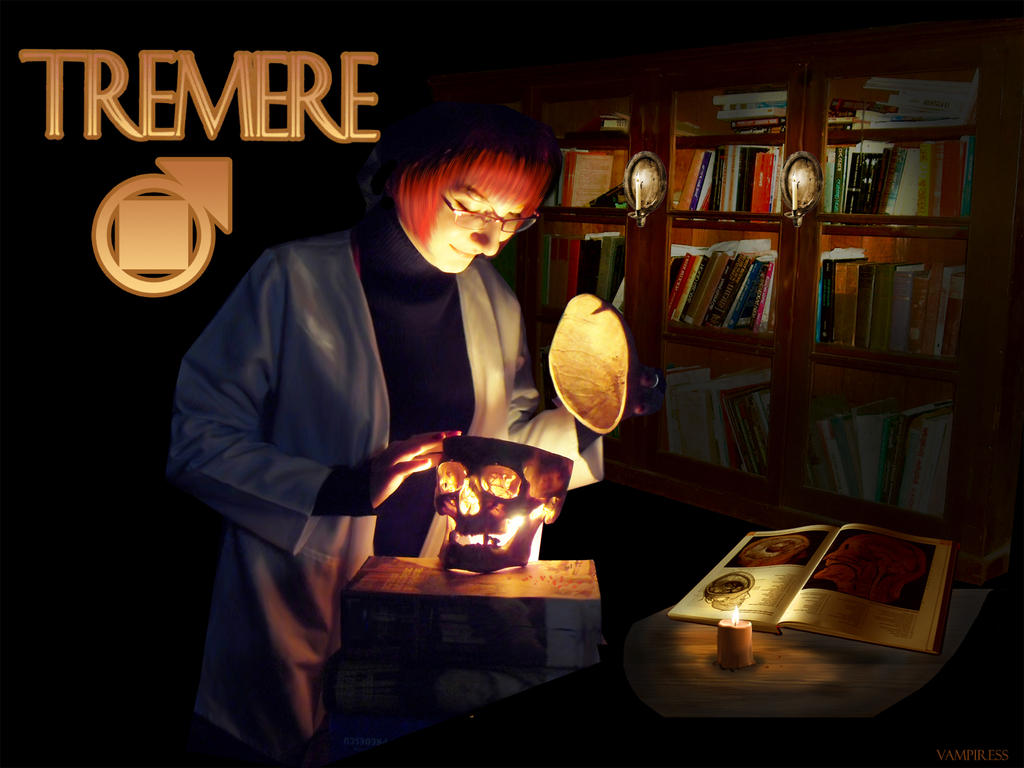Home Campaign: A series of RPG sessions that share a common theme, setting, and background played by the same players (with the same respective characters) and traditionally a single Game Master (DM/GM/Storyteller/etc.). While the rules as written may apply, house rules (rules specific to a specific group of players) often develop. Home campaigns are often very focused around the personal goals of the players' characters.
When it comes to RPGs, nothing competes with a solid, reliable, and enjoyable home campaign played with friends. That, however, seems to be a luxury that few can afford. It takes a lot of time and effort to craft stories from scratch – or, if you're Dave Jendrusiak, you borrow liberally from movies such as Willow (1988) and a variety of mid-grade fantasy novels to cobble a story together – and I'm betting that most adults just don't want to make that kind of commitment. It isn't just the DM/GM/Storyteller/whatever-other-title-is-used-for-the-person-running-the-game who has to put in the time to make that work. There is a very personal investment, and that requires a serious time commitment. OP play is much more willing to let the player decide how much of a commitment he or she wants to make. It may be a little harder to play as much as one wants when opportunities are limited to game days or conventions, but those allow for the player to step right in and participate as he or she sees fit. The person who only wants to be a player (and never GM) doesn't have to learn more than the rules for his or her character and enough about the setting to understand the basics of the game world.
 My favorite AD&D 2nd Ed. campaign had us playing once or twice a week for six to eight hours at a time. There were two things that made this level of commitment rather easy. First, we had absolutely no real financial obligations that made work seem like it was important (and only two of us in the group had jobs) and scheduling our weeks so that we could play seemed perfectly normal. Second, and very much part of the old school game geek mystique, none of us had any need of budgeting time for the ladies – because the ladies weren't interested in us. As a group of friends, spending 8-16 hours a week in the Tepavich basement seemed like a good deal. We had a good time (until the end of the 14 month campaign when it was revealed that our characters' actions counted for nothing in the grand scheme of the story) and felt pretty involved in the game. So much so that we probably spent about four hours a week as players plotting a kind of counter-strategy to keep the DM from thwarting our aspirations.
My favorite AD&D 2nd Ed. campaign had us playing once or twice a week for six to eight hours at a time. There were two things that made this level of commitment rather easy. First, we had absolutely no real financial obligations that made work seem like it was important (and only two of us in the group had jobs) and scheduling our weeks so that we could play seemed perfectly normal. Second, and very much part of the old school game geek mystique, none of us had any need of budgeting time for the ladies – because the ladies weren't interested in us. As a group of friends, spending 8-16 hours a week in the Tepavich basement seemed like a good deal. We had a good time (until the end of the 14 month campaign when it was revealed that our characters' actions counted for nothing in the grand scheme of the story) and felt pretty involved in the game. So much so that we probably spent about four hours a week as players plotting a kind of counter-strategy to keep the DM from thwarting our aspirations. When we – well, two of us at least – graduated to White Wolf storyteller games in 1995, time dedicated to gaming seemed even more disproportional. Our first Storyteller was (now Dr.) Jeff Bergman, who had definitely dedicated time to work, school, and the ladies. Actually, in the early 90s, Jeff was particularly good at scheduling his ladies time in the in-betweens so that we all knew he was getting some – and that somebody may need to drive the her in question home – but that he was also ready and up for gaming shortly thereafter. Our group had something like nine players (though only four of us made every session) and Jeff found a way to handle all of the characters and their personal stories. As a matter of fact, in addition to our regular weekly session I would regularly get some one-on-one time to develop my character and his story.
When we – well, two of us at least – graduated to White Wolf storyteller games in 1995, time dedicated to gaming seemed even more disproportional. Our first Storyteller was (now Dr.) Jeff Bergman, who had definitely dedicated time to work, school, and the ladies. Actually, in the early 90s, Jeff was particularly good at scheduling his ladies time in the in-betweens so that we all knew he was getting some – and that somebody may need to drive the her in question home – but that he was also ready and up for gaming shortly thereafter. Our group had something like nine players (though only four of us made every session) and Jeff found a way to handle all of the characters and their personal stories. As a matter of fact, in addition to our regular weekly session I would regularly get some one-on-one time to develop my character and his story.When Jeff became too busy with having a sort of adult life (and frankly, how dare he), I ended up taking over the duties of Storyteller. I took the easy route. I did almost no planning, adjusting on the fly to whatever the players were doing. Making things even easier, I simply moved the timeline back about six months and had the remaining players (now much fewer than nine) play FBI agents investigating their vampire characters. That still required a fair amount of prep work, but not so much that it hampered my going to school, working 30-36 hours a week, and still not having to worry about the ladies being interested in me. I even started running Vampire: The Masquerade sessions for Dennis Johnston's Fantasy Adventure League (FAL), though this was also more than a little slap-dash than it should have been. Where the home group had a consistent group of players and a consistent story, the same could not be managed when players would come and go, try out new character concepts for the hell of it, or just want to act like dicks and disrupt the game.
For some reason, I stuck with the White Wolf games, particularly Vampire: The Masquerade (2nd & 3rd Editions). I ended up with a decent, if small, group of players who were willing to play on Monday nights at 3D House of Games in Mokena, IL. I put together a 300+ page information packet for my Dallas: By the Light of the Silvery Moon chronicle (this was largely padded with maps and four-page character sheets for all of the NPCs) and probably spent about seven hours a week prepping for the first hour of that week's session and letting the players drive the action from there. There was a level of ownership to the game, to all the home campaigns. It was our game. It wasn't accessible to people who didn't play it because they didn't play with us. People may have been playing AD&D, Heroes Unlimited, Star Wars (d6), Vampire: The Masquerade, or Werewolf: The Apocalypse, but they weren't playing in our world.
One of the oddest things about playing in the Living Arcanis OP campaign was how much the players – well, many of the players – invested in the story and campaign as though it were just a giant home campaign. We didn't have to spend time crafting the mods (though adjusting to the idea that play sessions were expected to last only four hours and neatly wrap-up at the end was new and different for those of us who weren't that familiar with OP). The thing is, we started off playing it as though it were simply a home campaign without us having to write the mods or somebody missing out on character advancement because they had to be the GM. Maybe that is why we became so invested in the campaign, but we also expected to be able to affect the campaign. After all, didn't it encourage us to "leave [our] mark upon the Shattered Empires"?
I, in particular, decided that I was going to add my version of flavor the way Living Arcanis noted our rewards, which was in the form of certs (because calling them certificates apparently just wouldn't do). While LA could give us material rewards (see real certs below), they also noted influence and consequences for the characters. I made fake certs. They had no real value according the to rules of the OP campaign, but it helped me feel like my character was a part of the world, and a valid one at that. A sample of my fake certs can be found under the real ones.
Anyway, this is all a long prologue to the simple statement that the OP experience is different than that of the home campaign. In the follow-up, whenever I get around to writing it, I'll actually try explore how each has its merits and what one should expect from each. And, if you were playing in one of my home campaigns, apparently you'd learn to expect things like my fake certs. But I did enjoy Living Arcanis (even if the ending was sort of sad and largely ignored the actions of the PCs in favor of highlighting the NPCs that many of us didn't really care about) and I think it is one of the stronger representatives of the OP experience.
[By the way, Mistocles Sardis was my primary PC and Valencia Baiocchi was his cohort (I've since adapted those character names to a series of fantasy short stories I'm trying to write), the spider figurine was a consequence from a mod (but James Zwiers didn't make a cert for it), Dagmar val'Ossan was played by Mary Bamford, and "Hanz" val'Tension was played by Derrell Weaver (and I misspelled Hurrious).]
And since I am going to be on the road dealing with some personal stuff – which is likely to make it to this blog – I thought I would at least put up something lighter that had lots of pictures.











No comments:
Post a Comment